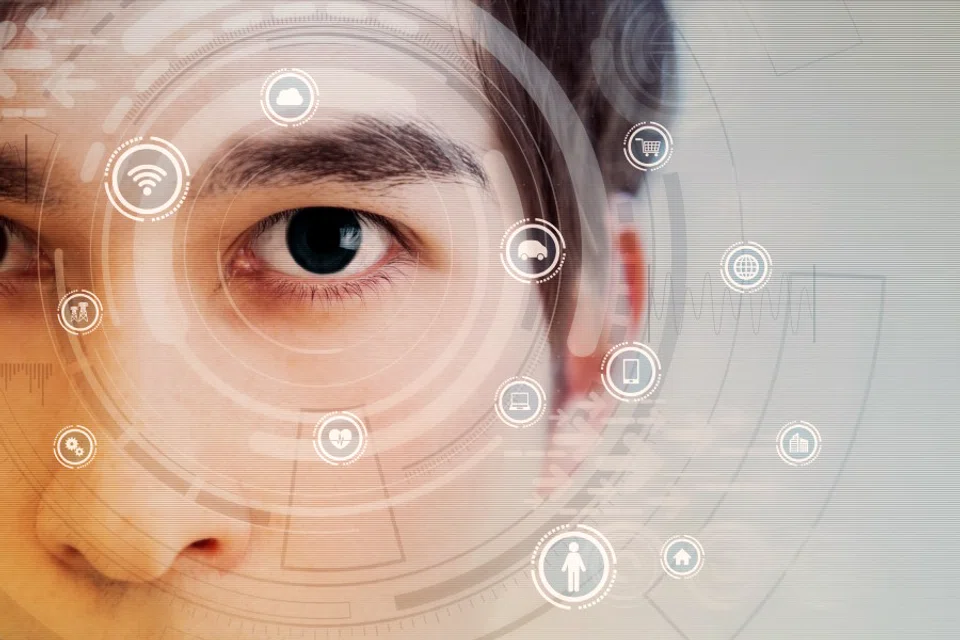Is China becoming the world's most sophisticated surveillance regime?
China will be implementing the social credit system in 2020. Seen as a form of mass surveillance build on big data technology, many are concerned that this will threaten human autonomy and aggravate human rights issues. Will China become the world's most sophisticated surveillance regime? Bram Barclay discusses this through the book "The age of surveillance capitalism".

There is a cliché about the internet age. "If a product is free, you are the product." This cliché is wrong, argues Shoshana Zuboff, a professor emeritus at Harvard business school in her book Surveillance Capitalism. "You are not the product; you are the abandoned carcass. The 'product' derives from the surplus that is ripped from your life."
Surveillance capitalism is a departure from industrial capitalism. Industrial capitalism was driven by production. Surveillance capitalism is driven by extraction. Human beings under surveillance capitalism are not products, instead we are fonts of behavioural surplus data that is then packaged by surveillance capitalists and sold on for instrumentarian (endnote) ends. "Machine processes replace human so that certainty can replace trust," Zuboff writes.

Surveillance Capitalism is a remarkable work of scholarship. It is meticulously researched, such that in the few instances when it slips into a polemical mode, Zuboff conjures a quote from one of the titans of Big Tech which shows her point not only to be valid but also the callousness with which these companies regard their fellow man.
After a long section showing how the internet of things--the embedding of computing devices in everyday objects which allow them to send and receive data and which will proliferate rapidly with the arrival of 5G data technology--will create ever more data to be packaged and sold, she quotes an IBM report which excitedly refers to this process as 'the liquification of the physical world'.
It's not that the machines are becoming more human, it's that technologies like machine learning that require enormous data sets erase our individuality and treat humans as a swarm that can be corralled.
Surveillance Capitalism is part of the vanguard of texts, alongside works like Evgeny Morozov's The Net Delusion, Nicholas Carr's The Shallows, Sherry Turkle's Alone Together and Tim Wu's The Attention Merchants which sound the alarm about the dark side of our increasingly connected world.
Surveillance Capitalism may well be the most powerful yet. In detailing the emergence of "a new economic order that claims human experience as free raw material for hidden commercial practices of extraction, prediction, and sales," Zuboff is making an argument not just that what we're experiencing is unprecedented, but that it could be catastrophic for humanity.
Under surveillance capitalism it's not just machines that are automated, the entire economic system is tailored around predictive technologies that automate us. It's not that the machines are becoming more human, it's that technologies like machine learning that require enormous data sets erase our individuality and treat humans as a swarm that can be corralled.
The industrial age, by sparking the climate catastrophe, has had a profoundly deleterious effect on nature. The information age, Zuboff argues, might do the same for human nature.
The privacy debate in China is about the reckless selling of data to third parties and the ease with which personal information like bank details and home addresses are openly traded on the black market and used for outright fraud.
This month I've been on crutches recovering from a broken foot, which gave me the time to slow down and really read this book--which is over 700 pages long and weighs more than a kilo. Carrying it around in my backpack, I sometimes felt as if I had the weight of the world on my shoulders.
Zuboff pitches Surveillance Capitalism as a modern version of Arendt's The Origins of Totalitarianism. Rather than writing retroactively she hopes that she can forestall us sleepwalking into digital tyranny.
As I've written elsewhere, there is the start of a privacy awakening in China. As I noted in that article, the nascent conversation about privacy "isn't about privacy from the government-that is a moot point in the context of China. Rather, the privacy debate is about what happens to your data." The privacy debate in China is about the reckless selling of data to third parties and the ease with which personal information like bank details and home addresses are openly traded on the black market and used for outright fraud.
Despite this conversation, the Chinese techno-sphere is heavily dominated by a few companies. Just the three BAT companies (Baidu, Alibaba, and Tencent) alone control or back over 50% of all of China's 124 unicorns - private companies with a valuation of US$1 billion or above.
Alibaba and Tencent, which both have their own payment platforms, have their vast tendrils around every aspect of the digital economy. Because their product offerings are simultaneously diverse across various sectors while simultaneously centralised through their payments platforms, the potential for extracting behavioural surplus data is even greater than that of their rivals in the West.
Surveillance Capitalism, despite its length, only has a cursory section on China (roughly 15 pages) and most of it is a glossed account of the Social Credit System that is drawn from media accounts and is not particularly accurate.
2020, the year that the social credit system in China is meant to be implemented, is rapidly approaching. However, while Western accounts tend to view it as either Orwellian or Black Mirror-esque it remains to be seen how the system will come to eventually be implemented.

Most of the more level-headed accounts written by scholars tend to see it as a digital upgrade of existing systems that isn't likely to have the kind of seismic social impact you would expect if it really were an "AI-powered surveillance regime that violates human rights," as one account described it.
As Shazeda Ahmed, a scholar at UC Berkeley's School of Information has written, the social credit system is more about reinforcing government blacklists and giving them "teeth". According to the SCMP, this has already stopped the sales of over 26 million plane and train tickets.
Even if the social credit system is not what western accounts have cracked it up to be, it's clear from recent reporting in Xinjiang that China is in the process of building the world's most sophisticated surveillance regime. As the MIT technology review opined last year, "who needs democracy when you have data?"
Notes:
Instrumentarian power is a consequence of surveillance capitalist operations that threaten individual autonomy and democracy.



![[Photos] Fact versus fiction: The portrayal of WWII anti-Japanese martyrs in Taiwan](https://cassette.sphdigital.com.sg/image/thinkchina/3494f8bd481870f7c65b881fd21a3fd733f573f23232376e39c532a2c7593cbc)

